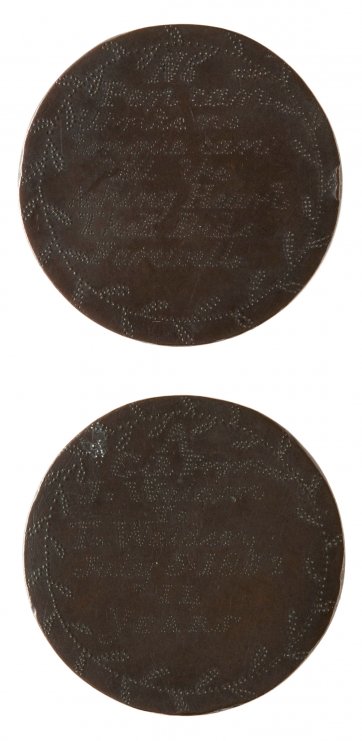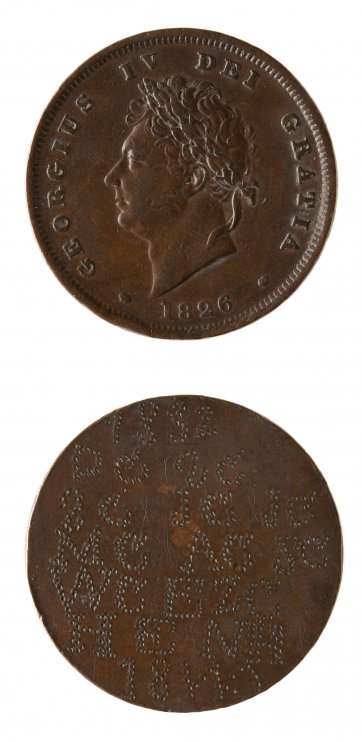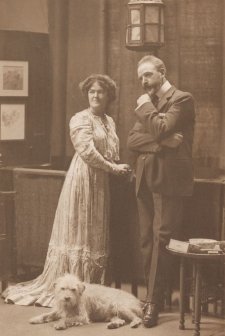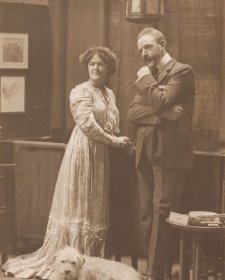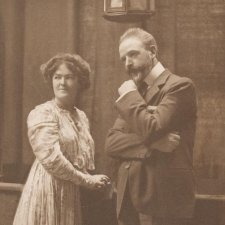Finding and inscribing your last words to someone you love on a penny (around 36 millimetres in diameter) would be a difficult task – yet that is exactly what many British convicts did between 1788 and 1868.
In 1818, 15 year-old Londoner John Camplin was sentenced to death for attempting to steal a silver watch. Perhaps because of his youth and naivety, his sentence was commuted to transportation for life to the Australian penal colonies. Camplin’s story is similar to that of John Waldon, aged 20, and Thomas Alsop, aged 21, both of whom were caught stealing and subsequently transported. Often the only possessions young convicts had whilst awaiting transportation were cartwheel pennies. They would smooth the coins down and hand stipple (engrave) personalised message for their loved ones into the surface. The phrase ‘Remember me’ is common among the tragic, fatalistic and heart-rending goodbye messages on these ‘love tokens’. Young Alsop’s is inscribed with a hauntingly beautiful poem. The tokens that exist today – around 350 of them – have outlived their creators, perhaps indicative that the families of the convicts sought to remember their convict relative, and ensure future generations would too.
